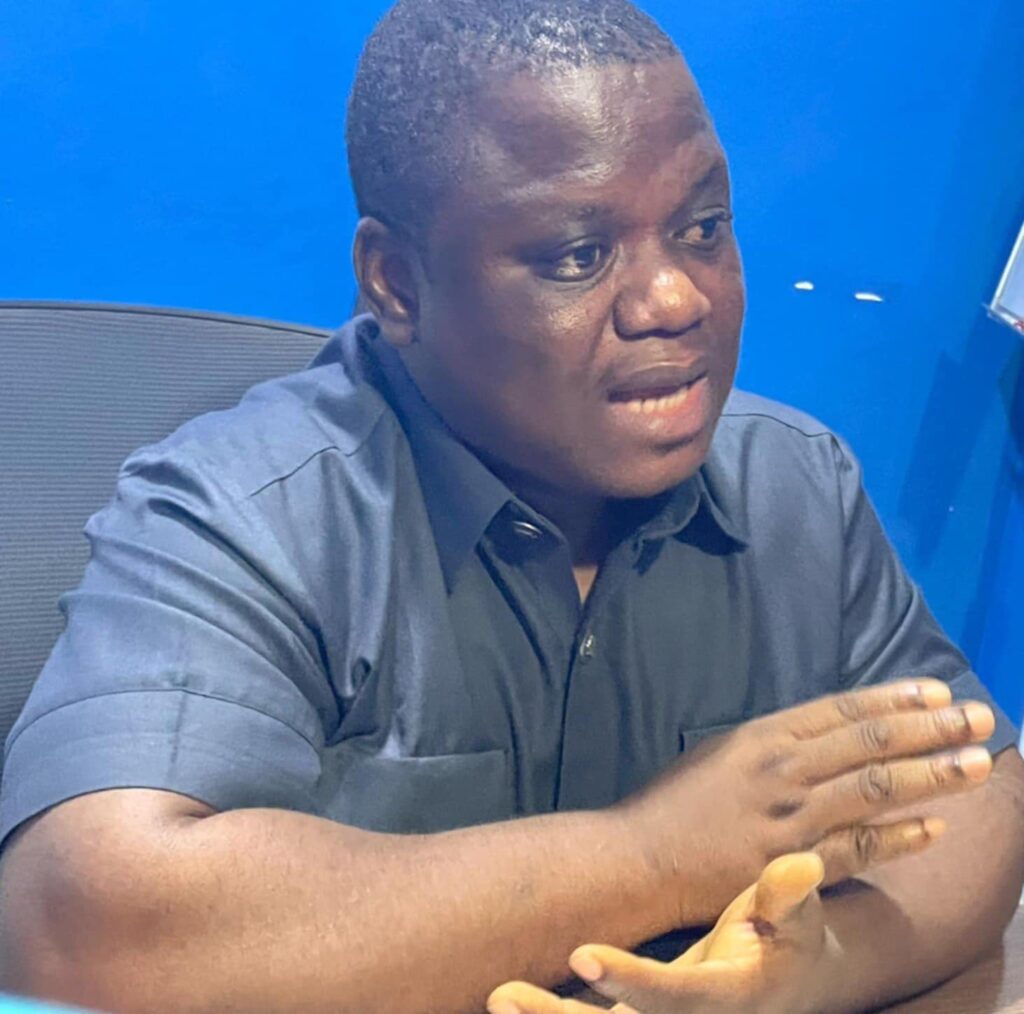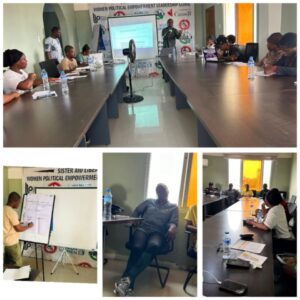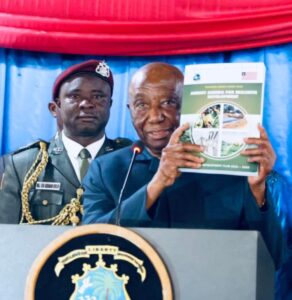HASTY PASSAGE OF 2025 NATIONAL BUDGET RAISES EYEBROWS, AS CSO EXPRESSES CONCERNS

By: Laymah Kollie
MONROVIA: The Center for Transparency and Accountability in Liberia (CENTAL), has expressed grave concerns over the credibility of the 2025 National Budget following what he described as its “hasty passage” by both Houses of the Legislature.
The Executive Director Anderson D. Miamen addressing the press at CENTAL’s offices on Monday, December 23, 2024, in Monrovia, highlighted procedural violations and transparency issues surrounding the budget review and approval process. For over two months, the House of Representatives has been entangled in a leadership struggle that has significantly disrupted legislative activities, including the timely review of the fiscal year 2025 National Budget.
During this period, CENTAL observed a troubling shift in lawmakers’ priorities from serving public interests to pursuing personal gains. This leadership crisis culminated in an expedited budget approval process that raises critical questions about the integrity of Liberia’s governance structures.
On November 18, 2024, President Joseph N. Boakai submitted a draft budget of $851 million to the Chief Clerk of the House of Representatives. However, CENTAL noted that deliberations on the budget commenced weeks later on December 9, 2024. Within an unprecedented span of ten days, both the House of Representatives and the Senate approved the budget, now revised to $880,662,000, without comprehensive scrutiny or adherence to established protocols. Miamen expressed particular concern about the absence of the constitutionally elected Speaker of the House Cllr. J. Fonati Koffa during deliberations. Instead, a faction of lawmakers, allegedly acting without legitimate authority, presided over the budget discussions.
“Only an illegitimate faction seeking favor and recognition from the Executive would proceed in such a manner that undermines oversight and public trust,” Miamen asserted. The process violated Section 17.1 of the amended 2019 Public Financial Management Act, which mandates the submission of the draft budget at least two months before the start of the fiscal year.
By submitting the budget on November 18 for a fiscal year beginning January 1, the Executive Branch allowed insufficient time for thorough review and deliberations. Miamen criticized the Legislature for failing to conduct public hearings and scrutinize performance reports of spending entities as required by law.
He noted that discussions on the revenue and expenditure components of the budget were concluded in just five working days each, a timeline he described as inadequate for evaluating a fiscal plan of such magnitude. “This rushed approval process undermines transparency and leaves the use of public resources to the whims of public officials,” Miamen stated. He further argued that the lack of scrutiny reflects failure by lawmakers to fulfill their oversight responsibilities, thereby eroding public confidence in the budget’s credibility. CENTAL has called on President Boakai to reject the budget as a product of an illegitimate process. “The actions of a certain group of lawmakers to assume the authority to pass the budget is a dangerous precedent,” Miamen warned. “Going forward, any group of 38 lawmakers could gather to make laws outside established channels, provided they have the backing of the Executive.”
Miamen urged the Legislature to prioritize adherence to the rule of law and respect for established procedures. “The example should first be set by the representatives of the people. Any shortcuts will haunt the country in the not-too-distant future,” he emphasized. Despite his criticism of the budget process, Miamen commended Liberia’s recent selection for a new Millennium Challenge Corporation (MCC) Compact. During its quarterly meeting on December 18, 2024, the MCC Board announced Liberia’s eligibility for a new Compact, citing the country’s progress on the MCC scorecard and commitment to economic and democratic reforms.
“This milestone presents an opportunity for Liberia to leverage resources for infrastructure and other critical sectors that can spur inclusive and sustainable economic growth if managed transparently and inclusively,” Miamen remarked. He called for the government to involve civil society and citizens at all stages of the Compact’s development and implementation to ensure accountability and public participation. CENTAL also urged the government to learn from past MCC Compact experiences to avoid repeating mistakes. “Successes, challenges, and lessons learned from the country’s previous Compact must inform decision-making for the new partnership,” Miamen advised.
Miamen concluded by extending gratitude to Liberia’s development partners, donors, stakeholders, and citizens who supported CENTAL’s work throughout 2024. “Warm season’s greetings to all, and best wishes for 2025 and the years ahead,” he said. Meanwhile, as the controversy surrounding the 2025 National Budget continues to develop, CENTAL’s call for accountability and transparency serves as a crucial reminder of the need for integrity in Liberia’s governance processes. Whether the Boakai administration will heed these recommendations remains to be seen, but public pressure for reform is growing louder.



